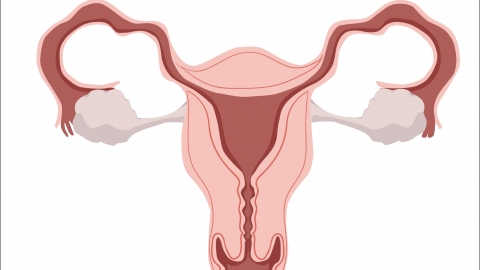What are the common gynecological diseases in elderly women?
Generally, common gynecological diseases in elderly women include vaginal laxity, ovarian function decline, vaginitis, uterine prolapse, and uterine fibroids. If discomfort symptoms occur, it is recommended to seek medical attention promptly and receive standardized treatment under a doctor's guidance. Detailed analysis is as follows:

1. Vaginal Laxity
Vaginal muscle and tissue relaxation is associated with aging, childbirth injuries, and other factors. It is recommended to perform pelvic floor muscle exercises to strengthen vaginal muscle strength; vaginal tightening products such as tightening gels or creams may also be used.
2. Ovarian Function Decline
With aging, ovarian function gradually declines, leading to reduced estrogen secretion. This may be accompanied by symptoms such as menstrual irregularities, reduced menstrual flow or menopause, as well as vaginal dryness and itching. Estrogen deficiency can be supplemented under medical guidance with medications such as estradiol valerate tablets, conjugated estrogens tablets, and progesterone capsules.
3. Vaginitis
Vaginitis is an inflammation of the vaginal mucosa, possibly related to bacterial infection, fungal infection, or vaginal flora imbalance. It is typically accompanied by symptoms such as vaginal itching, abnormal vaginal discharge, and a burning sensation. Symptoms can be relieved under medical guidance using medications such as cefixime capsules, levofloxacin hydrochloride capsules, and clotrimazole suppositories.
4. Uterine Prolapse
Uterine prolapse occurs due to relaxation and damage of uterine supporting tissues, causing the uterus to descend into the vagina or protrude through the vaginal wall. Common symptoms include lower back pain, a sensation of pressure, and difficulty urinating or defecating. Surgical treatment may be performed under a doctor's guidance, such as Manchester operation or vaginal closure surgery. The Manchester operation typically shortens the cardinal ligaments to improve uterine prolapse. Vaginal closure surgery involves suturing the denuded surfaces of the anterior and posterior vaginal walls.
5. Uterine Fibroids
Uterine fibroids are benign tumors formed by the proliferation of uterine smooth muscle cells. They commonly cause irregular menstruation, abnormal bleeding, and pelvic pressure symptoms such as frequent urination and urgency. Treatment under medical guidance may include medications such as mifepristone capsules, danazol capsules, and tamoxifen citrate tablets. If symptoms are severe or the fibroid is large, surgical treatment such as myomectomy or hysterectomy may be considered.
It is recommended to develop healthy lifestyle habits, ensure proper rest and work balance, and avoid excessive fatigue to promote overall health.





